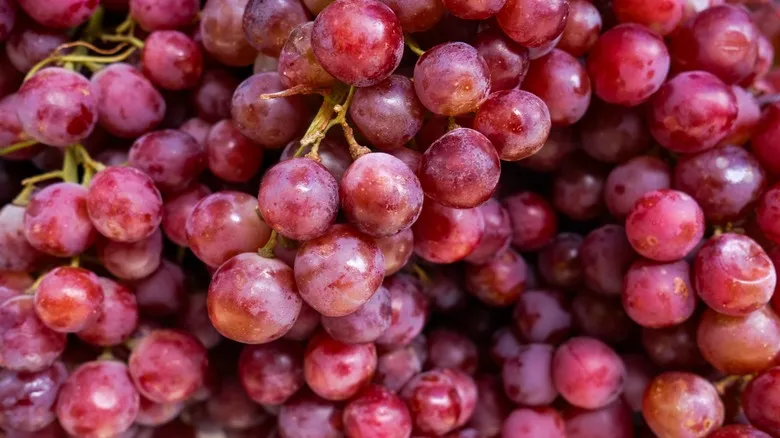Why this grape refrigeration method works so well
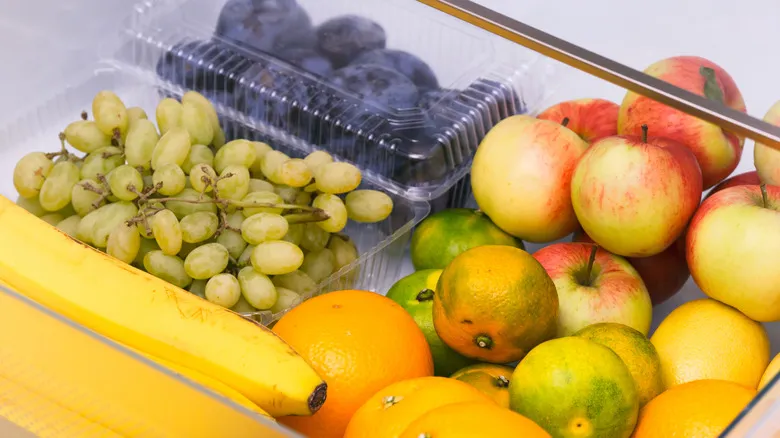
Every effective kitchen practice often has a scientific basis, and this refrigeration technique for preserving grapes for weeks is no exception. The first crucial step is soaking the grapes in a vinegar solution. The acidity of the vinegar inhibits mold growth and eliminates any bacteria that may be present on the fruit's surface, thereby slowing down the grapes' decay. Furthermore, vinegar helps remove the white residue known as bloom, which, while safe to consume, may not be to everyone's liking, ensuring a thorough cleaning.
It's also essential to dry the grapes completely to minimize surface moisture. Excess moisture can lead to sogginess, creating an environment that fosters rot. Therefore, it's vital to ensure the grapes are completely dry before storing them in the refrigerator. Additionally, using an airtight container is important to prevent cross-contamination while the grapes are stored for weeks. This also protects them from absorbing unwanted odors from other items in the fridge, such as onions, garlic, or fish.
Freeze grapes for even longer preservation
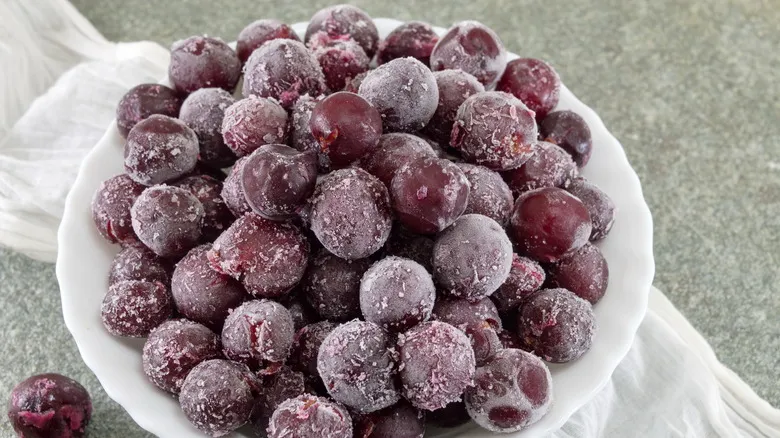
If you want to extend the shelf life of your grapes, freezing them is an excellent option. According to the U.S. Department of Agriculture, freezing keeps food safe indefinitely: "If it's frozen, it's safe to use. Dates on frozen food are not for safety." As long as your grapes are stored at 0 degrees Fahrenheit or lower, they will remain safe to eat, although their quality may diminish over time. For optimal taste and texture, it's recommended to consume them within about 12 months.
One drawback of freezing grapes is that once they are thawed, they tend to lose their crispness and become soft and mushy, with a slight change in flavor. However, if you intend to use them while still frozen—such as for smoothies or as a refreshing snack—freezing is a great choice.
The process of freezing grapes is simple and resembles the method used for freezing other fruits like watermelon. Start by removing the grapes from their stems, rinsing them under clean running water, and drying them thoroughly with paper towels or a kitchen cloth. Then, spread the grapes out on a lined baking sheet and place them in the freezer for a few hours or overnight to flash-freeze. Once they are completely frozen, transfer them to zip-lock bags, remove the air, seal them, and return them to the freezer.
Recommended
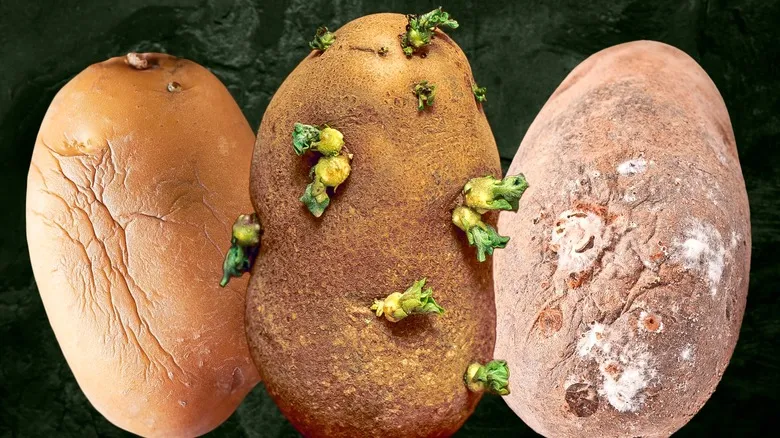
9 Tell-Tale Signs Your Potatoes Have Gone Bad

The Smartest Way To Store Cobb Salad So It Stays Fresh
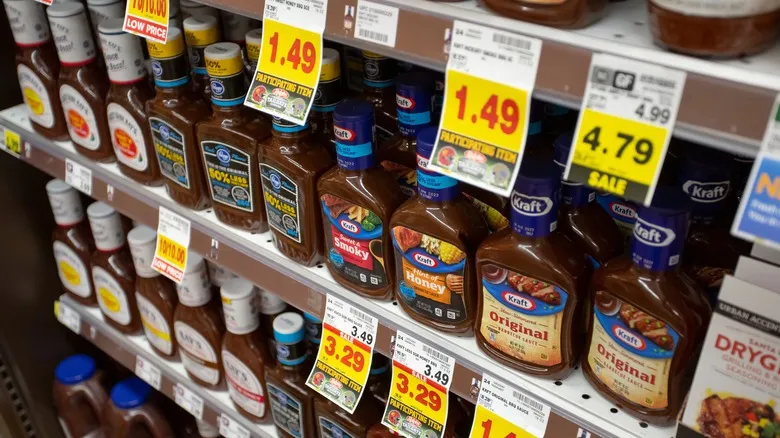
When Does Store-Bought BBQ Sauce Really Go Bad?
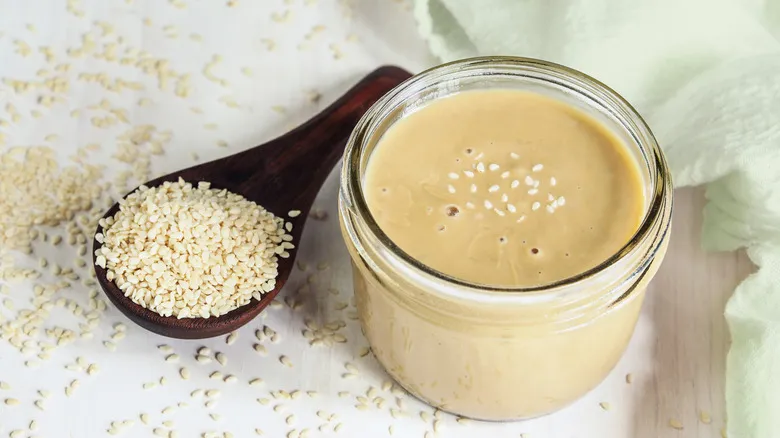
How Long An Open Jar Of Tahini Will Stay Good
Next up

